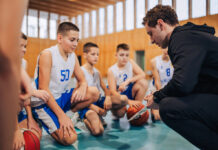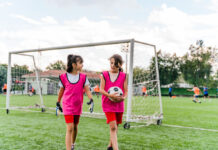The impact of homeschooling on students faces regular debates. However, the behavioral implications of it are more evident than ever before. Cyber schooling adds a new spin on at-home learning, replicating a public or private school experience in cyberspace.
Examine cyber schooling vs. homeschooling and how it can impact student behavior. Knowing the facts can help parents and guardians make the best decision for their children.
Cyber schooling vs. homeschooling
The line between the two often blur, especially since the COVID-19 lockdown. Homeschoolers often use online resources, while cyber students can get assistance from their supervising parent or guardian. However, many parents, teachers and researchers consider it cyber schooling if a licensed teacher plays an active role in your child’s online education. For homeschooling, the parents track their learning.
Behavioral impacts of homeschooling and cyber schooling
How your child learns can change their behavior. Here are some of the most significant impacts of homeschooling on students and how related behaviors can switch between them.
Identifying student struggles
With large class sizes, documented heavy demand on teachers and chaotic school schedules, it can be challenging for educators and school personnel to notice when a student struggles emotionally. It’s even harder when schools are facing those challenges behind a screen.
Identifying young ones needing support can be hard to do without in-person, one-on-one interactions. In one-on-one homeschooling and co-op programs, it’s easier for parents to get to know their kids, identify when something is off and seek support.
For academic struggles, cyber schooling may have an advantage. While some students find less pressure in cyber and homeschooled environments than public schools, they also may act as if they’re doing better than they are. It’s easier to track academic progress when comparing one learner to a large group of peers. Knowing that comparison can cause students to take more accountability in their academic careers.
For students in a public or cyber school environment, teachers and parents can compare notes when their young one’s demeanor changes. Kids tend to act differently in a public setting than at home and having another adult with experience around them can offer a necessary perspective. Homeschooling could limit your ability to identify the source of behavioral changes, though it may provide fewer triggers.
Curriculum
Homeschooling offers significantly more freedom than cyber schooling. Regulations vary by state, with 11 offering programs that don’t require parents to notify officials about their homeschooling plans. A stay-at-home parent ultimately controls what their children learn and when they do so. They can personalize learning to their family. However, they need to study basic subjects to qualify for higher education and some extracurricular activities.
One big reason parents homeschool is dissatisfaction with the local school systems. They feel they can find better resources to lead their kids to success. Homeschooling also allows parents to educate on their values and beliefs.
Meanwhile, cyberschooling often requires the same or similar curriculum as in-person public or private schools. The teachers have experience in various subjects and students can receive a more comparable education to their peers. Being in a class can create a sense of belonging, which can positively impact behavior.
Both homeschooling and cyber schooling could improve a student’s behavior thanks to opportunities to specialize in new skills. Homeschool customizations allow the same. Many grades must offer a one-size-fits-all curriculum, which can cause under or overstimulated students to act out. The ability to broaden their horizons and learn at their own pace can create calmer and happier learners.
Mental health
Between living in the digital age, increasing financial pressure and heated political discourse, preserving student mental health is a top priority for parents and teachers. The same students are more likely to internalize their emotional distress.
Being in a group learning environment adds social pressures the home environment might not provide. This can have positive and negative mental health impacts. Not being around many other kids can cause less anxiety, helping them focus more on academics and the hobbies they want to pursue. However, some young ones might feel socially isolated, influencing rates of depression and social anxiety.
Cyber schooling often involves a virtual classroom, and encourages children to interact with one another in group activities and outside of school. This can give them a sense of belonging while protecting them from schoolyard drama.
Bullying
Kids are still learning to socialize with kindness and empathy. Unchecked, the inability to care for peers can lead to bullying. Negative interactions happen with clashing personalities, but bullying happens when kids target others for harm, which can lead to devastating mental health consequences.
What might seem fun to the bully creates lifelong trauma for their victims. A bullied person can develop severe anxiety and fear of going to school. Others could become depressed or isolated.
During the forced virtual learning of 2020, there was a significant decrease in bullying incidents. Screens set physical and psychological barriers to cruel behaviors. It can create healthier relationships with peers and recordings can help teachers catch when hurtful actions happen.
Kids are less likely to bully when they know an authority figure could notice. Homeschooling can eliminate the chances of bullying by removing the opportunity for other kids to bother them. Homeschooled students can have a better capacity for learning empathy and understanding. A recent study found they were 31% more forgiving and 33% more likely to volunteer than other learners.
Regardless of whether a parent homeschools or enrolls their child in a cyber school, the correlated reductions in bullying and other negative social interactions can reduce stress levels and boost their self-esteem. It can make them happier to attend their lessons and help them focus.
Socialization
Socialization is one of the hottest topics when debating which schooling is best. For years, public- and private-school advocates mentioned the lack of social development in homeschooled children. However, that’s not necessarily accurate.
While isolating kids can impact their social interactions, technology and other strategies help them learn what they need to communicate with others. The internet allows students to find friends with similar interests, and social media can expose them to different cultures and viewpoints. Homeschool co-ops are growing in popularity, helping children interact in person with other young ones who share a similar learning environment. These interactions can help them come out of their shells around others.
For introverted or bullied kids, social anxiety can run rampant. Cyber schooling can be an excellent compromise, allowing them to form relationships with peers and teachers. The student-teacher relationship can be powerful and allows your child to practice respectful, safe communication with an adult outside their home. While a homeschool co-op limits the ability to choose who they interact with face to face, beginning a friendship organically in cyber schooling can boost their self-confidence.
Seeing their classmates can expose them to more mannerisms, body language and facial expressions. Once they start learning these interaction skills, it can encourage them to begin in-person friendships.
Evaluating the impact of homeschooling on students
Behaviors can provide vital information about a student’s well-being. Knowing how cyber schooling vs. homeschooling could impact kids can help parents and educators determine the best options for each child.
Beth is the Managing Editor at Body+Mind. She writes about education, parenting, and the importance of good nutrition for children. You can find Beth on Twitter @bodymindmag. Subscribe to Body+Mind’s newsletter for more posts by Beth.




